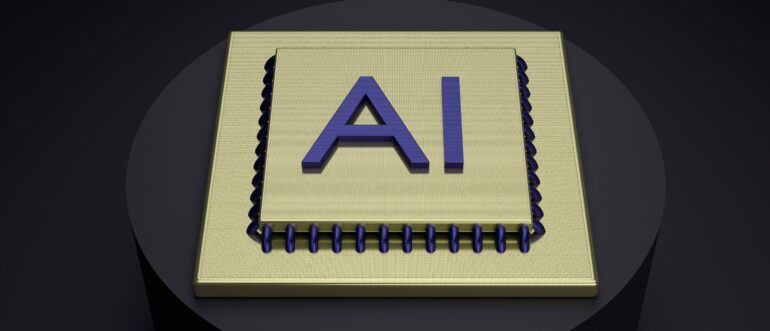
Included in AMD’s rush of new products last week was its latest Ryzen chips, which marked the latest move by a tech vendor to accelerate the push for AI-capable PCs that they say not only will put generative AI capabilities into the hands of more people but also give a jolt to a global PC market that has slowed since the COVID-19 pandemic.
In introducing the new Ryzen 8040 series, AMD President and CEO Lisa Su noted that the adoption of generative AI has exploded, comparing the significance of its introduction to that of the internet – though the industry embrace has happened much faster – and adding that it’s not just the “cool new thing” but a “new way of computing.”
The new accelerated processing units (APUs), which will ship in 2024, will come with AMD’s XDNA 1 and XDNA 2 AI engines.
At the event, Su brought to the stage executives with Dell, Lenovo and Microsoft, who all reinforced the potential for AI PCs that will begin hitting the market next year to change the way businesses operate and to fuel a new substantial round of PC and notebook purchases.
Other chip makers are racing to bring out chips with greater AI capabilities. Intel later this month is expected to announce its new “Meteor Lake” Core Ultra processors, and companies like Qualcomm, Apple, AMD, and other chip makers also are developing more Arm-based chips with greater AI capabilities.
An ‘Inflection Point’
“The arrival of the AI PC represents an inflection point in the PC industry not seen since we first introduced Centrino [mobile computing platform] in 2003,” Intel CEO Pat Gelsinger said during Intel’s latest quarterly earnings call with analysts in October, adding that he expects within the next two years there will be more than 100 million x86-based AI PCs in the market.
In an interview with CNBC earlier this month, Acer Chairman and CEO Jason Chen said the company is putting AI capabilities into many of its devices, including PCs.
“We think it’s a revolutionary new model which will move the PC from a search device to be an ask device, which is a fundamental difference,” Chen said. “Because of that, we think there will be a new wave of revenue being generated.”
HP CEO Enrique Lores told CNBC last month that “this will drive significant momentum in the category, some in ’24, more in ‘25, more in ’26. As we have said before, we think this is going to double the growth of the PC category starting next year.”
Juicing the PC Market
So do industry observers. Canalys analysts are predicting the seven-quarter slide in global PC sales will end this quarter, when the market will grow 5% due to the holiday season and improving economies. They also expect 267 million units will ship in 2024, 8% more than this year, with AI-capable systems being a key driver. There already are some four dozen AI-capable PCs available now, and many more are coming.
“The impact of AI on the PC industry will be profound, with leading players across OEMs, processor manufacturers, and operating system providers focused on delivering new AI-capable models in 2024,” Canalys Analyst Ben Yeh wrote in a report last month. “These initiatives will bolster refresh demand, particularly in the commercial sector. The total shipment share of AI-capable PCs is expected to be about 19% in 2024.”
The early adopters of AI PCs will be “tech-savvy power users who require powerful hardware to run intensive AI workloads,” Canalys analyst Kieren Jessop wrote in September. “But over the next five years, AI-capable PC proliferation will be driven by the emergence of a marketplace of fine-tuned large language models (LLMs) and AI tools, and revamped operating systems defined by strong AI integration.”
Adoption will accelerate in 2025 as software is developed to take advantage of AI-capable PCs and the second generation of these systems dovetails with the market replacement cycle, Jessop wrote. By 2027, 60% of PCs will be AI-capable, he wrote.
Growing Number of Use Cases
That means users will be able to run foundation models on the machines, interact with them on a more natural basis, more easily run advanced tech like virtual and augmented reality, improve the latency, privacy and security of applications, and save on the cost of running AI applications in the cloud.
“There are three immediate AI functions that will likely impact enterprises,” Charles King, principal analyst with Pund-IT, told Techstrong.ai. “First, GPUs and NPUs – neural processing units – will enable workstations to support functions/tasks that should speed and improve core business applications. Second, AI-enabled applications (like Microsoft’s new Copilot) are designed to substantially enhance existing business solutions, such as Microsoft Office 365.”
In addition, “AI-enabled security features could be a godsend for mobile workers, branch offices and remote facilities [and] devices that can be vulnerable to hacking and exploits,” King said.
As far as whether more AI capabilities in PCs will revive a stagnant global market, he said “maybe,” at least in the short-term.
“Some of the initial AI-enabled features vendors have announced – improved audio/video performance, personalization and security – qualify as ‘nice to have’ more than ‘must-haves,’” King said. “That would change significantly if there are substantial differences between new and existing solutions.”
He added that some of the functions are currently supported with cloud-based services and analytics, so businesses will need to understand how AI-enablement in their PCs is an improvement over existing solutions.
However, “over time, I expect AI-enabled PCs to continue evolving to deliver ever-increasing benefits and features that will make life easier and better for business and consumer customers,” King said. “That could spark a Renaissance in PC use cases and markets.”


